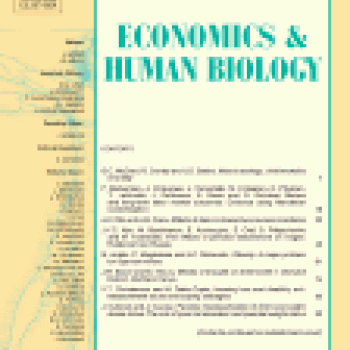Publication Information

This paper exploits three rounds of panel data provided by the Peruvian dataset of the Young Lives study to investigate the relationship between child cognition and obesity status among the poor.
Child weight status is measured by a full distribution of child weight, from severely thin to obese, using data from a z-score for body mass index and cognition is measured by the Spanish version of the Picture Peabody Vocabulary Test (PPVT). This relationship is studied at age five and age eight (school age), and disaggregated across socioeconomic factors of gender, urban/rural setting and indigenous/nonindigenous status.
The initial results suggests that obese children have higher cognitive scores and that this result is driven by those who are female, non-indigenous and live in an urban region. However, after correcting for possible bias due to unobservable heterogeneity, there is little evidence of this relationship. The one exception is for a weakly significant relationship between obese female children and higher cognition, a relationship which tends to weaken between the ages of five and eight.
On the other end of the weight distribution, indigenous children who are severely thin or thin have significantly lower cognitive scores, a relationship that holds after correcting for possible bias and appears to strengthen between ages of five and eight.
This paper contributes to a very small set of literature on child cognition and obesity, points to the importance of controlling for unobserved heterogeneity in estimation, and is the first of its kind to study this relationship in a developing country.
Keywords
Child obesity; Child nutrition; Cognition; Peru
Download Childhood obesity among the poor in Peru: Are there implications for cognitive outcomes? Suzanne L. Wisniewski.

This paper exploits three rounds of panel data provided by the Peruvian dataset of the Young Lives study to investigate the relationship between child cognition and obesity status among the poor.
Child weight status is measured by a full distribution of child weight, from severely thin to obese, using data from a z-score for body mass index and cognition is measured by the Spanish version of the Picture Peabody Vocabulary Test (PPVT). This relationship is studied at age five and age eight (school age), and disaggregated across socioeconomic factors of gender, urban/rural setting and indigenous/nonindigenous status.
The initial results suggests that obese children have higher cognitive scores and that this result is driven by those who are female, non-indigenous and live in an urban region. However, after correcting for possible bias due to unobservable heterogeneity, there is little evidence of this relationship. The one exception is for a weakly significant relationship between obese female children and higher cognition, a relationship which tends to weaken between the ages of five and eight.
On the other end of the weight distribution, indigenous children who are severely thin or thin have significantly lower cognitive scores, a relationship that holds after correcting for possible bias and appears to strengthen between ages of five and eight.
This paper contributes to a very small set of literature on child cognition and obesity, points to the importance of controlling for unobserved heterogeneity in estimation, and is the first of its kind to study this relationship in a developing country.
Keywords
Child obesity; Child nutrition; Cognition; Peru
Download Childhood obesity among the poor in Peru: Are there implications for cognitive outcomes? Suzanne L. Wisniewski.

